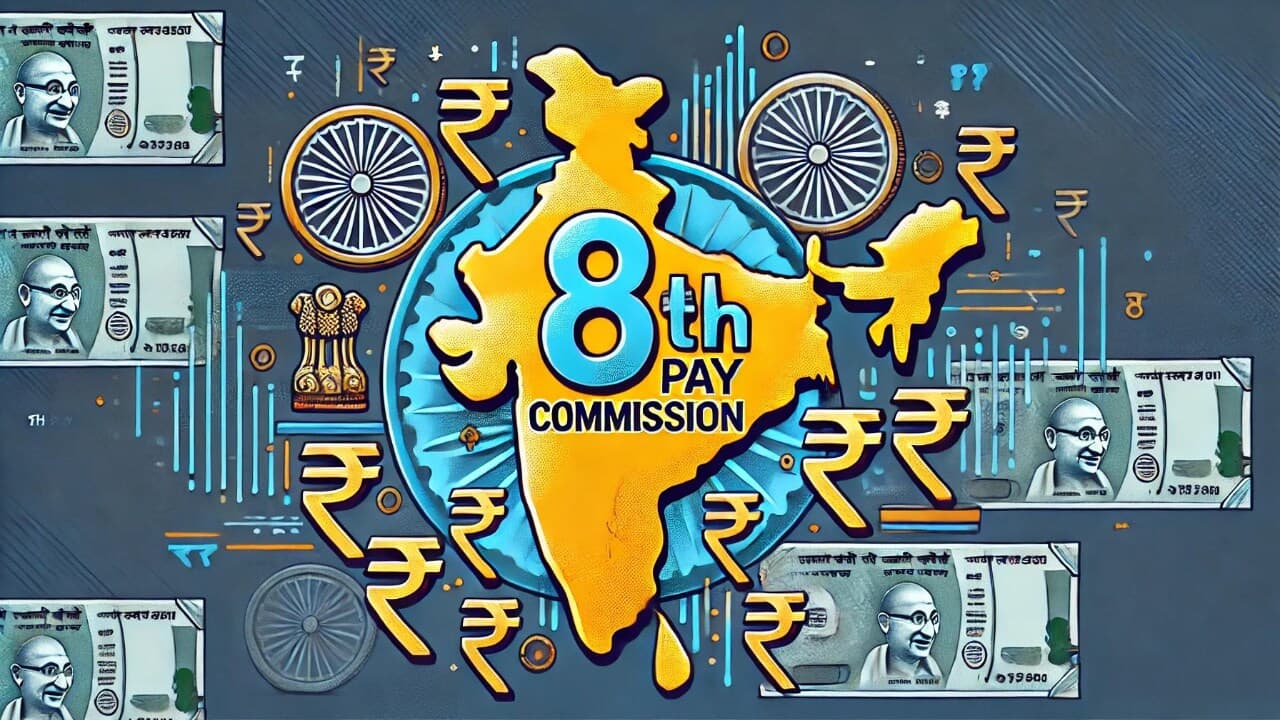
8th pay commission: The Central Government approved the 8th Pay Commission in January 2025. Since then, government employees and pensioners have been waiting for the formation of Pay Commission. Now a big report has come on this. The prestigious investment bank Goldman Sachs has stated in a report that how long the 8th Pay Commission can be formed and how much can the employees increase the salary.
How long can the Pay Commission be formed?
Goldman Sachs said in a note that the 8th Pay Commission may be set up in April 2025. Its recommendations are likely to be implemented by 2026 or 2027. Several reports also expressed the possibility that the 8th Pay Commission may be formed in April 2025.
How much will the salary increase?
Goldman Sachs has given three potential sanario to increase the salary of central employees. Their basis is that the government can allocate how much amount to increase salary and pension.
- Allocation of ₹ 1.75 lakh crore: If the government holds a budget of ₹ 1.75 lakh crore to implement the 8th Pay Commission and uses it for 50-50% salary and pension increase, then the average salary can increase by ₹ 14,600 per month.
- Allocation of ₹ 2 lakh crore: If ₹ 2 lakh crore is allocated, then the average increment will be ₹ 16,700 per month.
- Allocation of ₹ 2.25 lakh crore: YIf the Central Government allocates ₹ 2.25 lakh crore, then employees can get a salary increase of ₹ 18,800 per month.
50 lakh employees and 65 lakh pensioners will benefit
According to Goldman Sachs, currently the average salary of central government employees is ₹ 1 lakh per month (before tax). This increment will provide direct benefits to 50 lakh government employees and 65 lakh pensioners. Under the 7th Pay Commission, the Central Government had spent ₹ 1.02 lakh crore for salary and pension hike.
According to the report of Goldman Sachs, the average monthly salary of central government employees may increase by ₹ 14,000- ₹ 19,000 after the implementation of the 8th Pay Commission. This will be 14-19% of their current average monthly salary ₹ 1 lakh (before tax).
What happened on the 8th Pay Commission so far?
The Union Cabinet has approved the 8th Pay Commission on 16 January 2025. However, the members of the Commission, Chairman and Terms of Reference – Tor have not been decided yet. Once fixed, the Commission will discuss with all the concerned parties. It will then finalize the fitment factor and other aspects of salary-pension hike.
How much can the fitment factor be?
According to reports, the National Council-Joint Consultative Machinery (NC-JCM) has demanded a fitment factor of 2.57 or more, which is equivalent to the 7th Pay Commission. NC-JCM is a platform to resolve disputes between the central government and the employees.
Earlier 2.86 fitment factor was also demanded. However, in an interview given to a news channel, former Finance Secretary of India, Subhash Garg, described it as ‘Moon demanding’ i.e. impossible. According to him, ‘Fitment Factor can be around 1.92’.
Increase in minimum wage and pension according to fitment factor
If the fitment of 2.57 is applied, the central employees and pensioners will get the benefit of 157% hike.
- Minimum Wage: It will increase from ₹ 18,000 to ₹ 46,260.
- Minimum pension: It will increase from ₹ 9,000 to ₹ 23,130 (157% increase).
1.92 fitment factor is implemented
If a fitment of 1.92 is applied, central employees and pensioners will get 92% hike benefit.
- Minimum Wage: It will increase from ₹ 18,000 to ₹ 34,560.
- Minimum pension: It will increase from ₹ 9,000 to 17,280.
Impact on government spending and economy
With the implementation of the 8th Pay Commission, there may be a huge increase in government spending and it will also be loaded on the Indian economy. Keeping in mind its effects, the government will make a comprehensive review before any final decision.
Also read: Government extends one more step towards 8th pay commission, this new update came